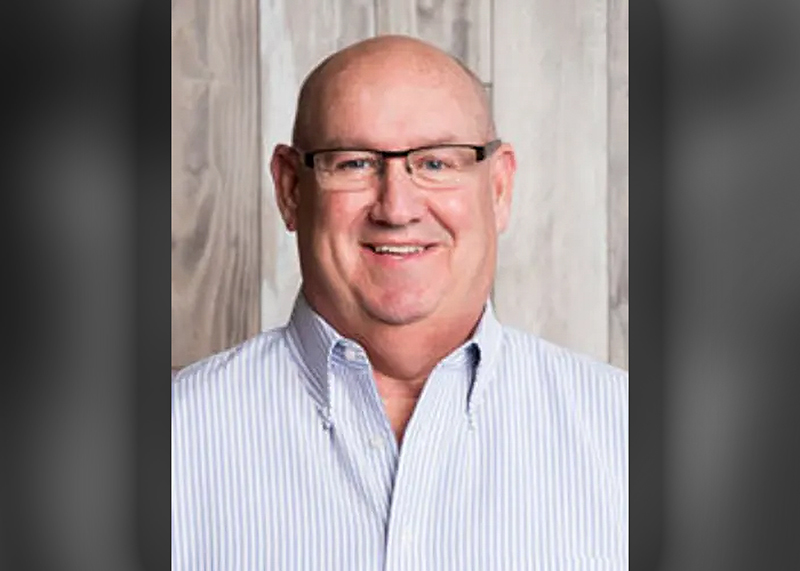Gay Man Claims Mental Health Platform Linked Him to Conversion Therapist
Caleb Hill claims he sought out an affirming therapist, but was linked to one who encouraged him to go back in the closet.

A young gay man who sought out an affirming therapist was linked to a practitioner he claims was trying to subject him to “talk” conversion therapy — underscoring one of the potential flaws of online platforms meant to link people to mental health services.
According to an exposé in the Wall Street Journal on the growth of telehealth services since the COVID-19 pandemic, some patients seeking help through digital mental health platforms have been dissatisfied with their experience, complaining that apps and platforms have not linked them with the types of mental health services or therapy they’d been seeking. One of those individuals was Caleb Hill.
According to the Journal, Hill, who was 22 when he was kicked out of his parents’ house after coming out as gay, felt isolated and depressed at his family’s rejection of him. Having grown up in a conservative Christian household where he was taught his attraction to men was sinful, Hill felt he needed someone to help him deal with the loss of his family.
Hill had heard podcast ads for BetterHelp, a subsidiary of Teladoc Health Inc. that provides therapy remotely and promises “a personalized therapist match that is tailored to your preferences and needs.”
Hill requested a therapist specializing in LGBTQ issues, but claims BetterHelp connected him with one who didn’t specialize in LGBTQ issues, but rather one whose personal website describes him as practicing “Christian counseling.”
Hill believes the therapist, Jeffrey Lambert, was trying to subject him to conversion therapy, which seeks to discourage individuals from identifying as LGBTQ by curbing same-sex or gender-nonconforming behaviors or impulses.
According to Hill, Lambert asked if he had ever been physically affectionate with a man. Hill responded that he hadn’t.
“He said, ‘Good.’ He said if I did want to go back to my family, I should think hard about being physical with a man, because it would be a lot harder after that,” Hill said. “He said if I chose to go back to who I was and deny those feelings, he could get me where I needed to be.
“He said either you sacrifice your family or you sacrifice being gay,” Hill said, indicating he was disappointed with the type of counseling he received. “I needed someone to tell me I was gay and that was OK. I got the exact opposite.”
Following his session with Lambert, Hill wrote the therapist an email saying he couldn’t go back into the closet, and quit BetterHelp after sending the note.
“I finally opened the door of the prison I built up inside, and the thought of going back kills me,” he wrote, according to a copy of the email obtained by the Journal. “Will kill me if I lock myself inside again.”
BetterHelp declined to comment on Hill’s experience, citing patient confidentiality.
“Given the scale of the service, unfortunate and negative experiences are not completely unavoidable, BetterHelp told the Journal in a statement. “This is true in all therapy settings, whether traditional or online.”
The company also noted that clients, like Hill, can switch therapists if they don’t like the one they are assigned. But Hill said his experience discouraged him from seeing other therapists for a long time.
BetterHelp claims to oppose conversion therapy, calling it “dangerous” in a blog post on its website.
“Conversion therapies lack scientific credibility and do not work regardless of sexual orientation, gender expression, gender identity, or other components of human sexuality and human development,” the post reads. “Most psychological associations condemn conversion practices. The American Psychiatric Association issued a formal statement that opposes conversion therapy and interventions like conversation therapies.”
The American Counseling Association also rejects the idea that conversion therapy can work, claiming that the practice violates the organization’s Code of Ethics and wrongly attempts to treat homosexuality as a mental illness.
A BetterHelp spokeswoman told the Journal: “If we do get information that a therapist conducts conversion therapy or similar practices, they would be removed from the platform.”
Lambert, the therapist, declined to discuss his experience with Hill due to client confidentiality rules, but defended his practice, noting he has received positive reviews from other clients. However, did not respond to a message from the Journal asking whether he engages in conversion therapy.
Support Metro Weekly’s Journalism
These are challenging times for news organizations. And yet it’s crucial we stay active and provide vital resources and information to both our local readers and the world. So won’t you please take a moment and consider supporting Metro Weekly with a membership? For as little as $5 a month, you can help ensure Metro Weekly magazine and MetroWeekly.com remain free, viable resources as we provide the best, most diverse, culturally-resonant LGBTQ coverage in both the D.C. region and around the world. Memberships come with exclusive perks and discounts, your own personal digital delivery of each week’s magazine (and an archive), access to our Member's Lounge when it launches this fall, and exclusive members-only items like Metro Weekly Membership Mugs and Tote Bags! Check out all our membership levels here and please join us today!





















You must be logged in to post a comment.